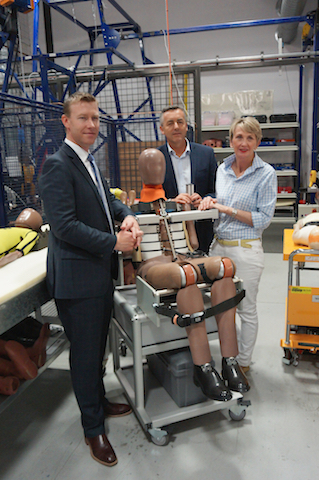

Australia’s independent safety body ANCAP will next year expand its range of crash tests to include for the first time assessments of automated technologies like lane-change warning and auto-emergency braking.
It will also have advanced adult and child crash-test dummies to obtain more data on injuries. There will be new targets for vehicles, pedestrians and cyclists; test barriers and trolleys will be modified.
The changes were announced by Australia’s Federal Minister for Infrastructure and Transport, Darren Chester. He said a critical part of the Australian New Car Assessment Programme was to ensure that its three test laboratories across the Tasman were fully equipped and ready to test the world’s best standards.
Chester said new technology was vital. “A safer vehicle may turn a potentially serious injury into a minor one, reduce pain and suffering, and save the health budget millions of dollars in follow-up treatment,” he said.
“Reducing road trauma is about safer drivers, on safer roads in the safest car people can afford, and driving at a speed to suit the conditions.
“Younger drivers in particular need to understand the benefits of purchasing the safest car in their price range, and a programme of continuous vehicle testing helps to keep customers well-informed.”
The greater emphasis on preventative and active safety features is the result of the having to meet stricter European protocols from January 1, 2018. At the moment ANCAP uses a combination of current Australian and European standards.
The new findings will be supported in New Zealand by the Government and the Automobile Association.
The latest ANCAP result has the new Volvo XC60 (above and top) scoring the test body’s highest five-star safety rating, in the process picking up class-leading scores in two key areas.
The SUV got 98 per cent for adult protection and 95 per cent for safety assist, a package of automated technologies. The rating applies to D4, D5, T5, and T6 variants. The T8 hybrid is unrated.
Volvo NZ general manager Coby Duggan said: “The pace of development in automotive safety has increased significantly in recent years and we’re thrilled to see Volvo’s research produce yet another vehicle which is considered market leading in its ability to protect Kiwi drivers.”

